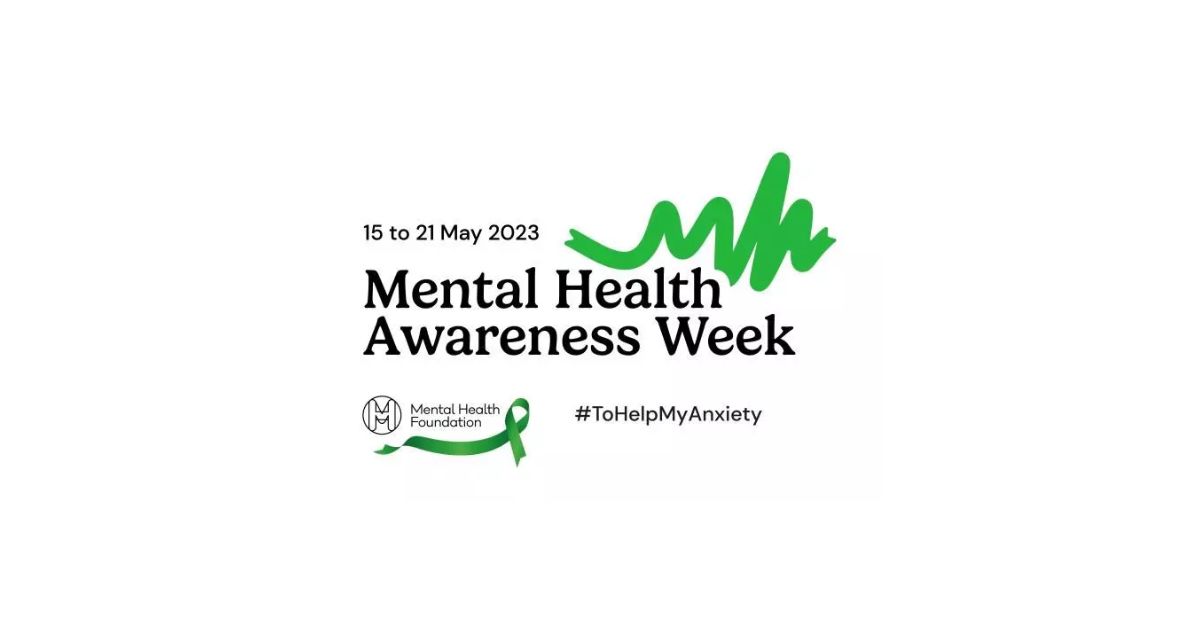Mental Health Awareness Week is an annual initiative, aimed at encouraging conversations around mental health in workplaces, families and communities across the UK.
Mental Health Awareness Week, now in its 23rd year, runs from 15-21 May and is hosted by the charity, Mental Health Foundation.
This year, the theme is ‘Anxiety’ which is a feeling of unease, such as worry or fear, that can be mild or severe. Anxiety is a natural human response when we feel that we are under threat. It can be experienced through our thoughts, feelings and physical sensations.
A recent survey by the Opinium found that 29% of adults experienced stress, 34% experienced anxiety and 10% said they felt hopeless because of financial worries during the previous month.
To support the campaign Stella Perkins, our Occupational Health Manager shares some suggestions and tips on how we can manage and improve feelings of anxiety and prevent them from developing into a more serious mental health problem.
Write down your thoughts
One effective way to tackle anxious feelings is by jotting down your thoughts and identifying what triggers them. This can help you prioritise your concerns, recognise patterns, and learn how to manage them better.
Take a break
Taking a break from a stressful situation or daily routine can provide much-needed relief and promote a sense of calm. Engage in activities that you enjoy, like listening to music, reading a book, experimenting with a new recipe, or watching a movie. These can be helpful in providing distance from the issue and clearing your mind.
Try a relaxing activity
Explore relaxation or wellness programs or apps, which may incorporate meditation, muscle relaxation, or breathing exercises. Schedule regular times for these and other healthy activities you enjoy. There are some suggestions on the Mind relaxation page and The NHS also has some tips on breathing exercises for stress.
Look after your physical health
To better manage anxiety, it’s important to prioritise healthy habits like eating well, staying physically active, avoiding substances like nicotine, caffeine, and alcohol, and ensuring adequate sleep. These practices can make a significant difference in promoting overall well-being.
Get regular exercise
Incorporating a daily 30-minute walk can enhance your mood and promote better health. Remember that even small amounts of exercise can make a difference. Don’t feel discouraged if you are unable to complete the full 30 minutes in one go.
Get involved
Consider volunteering or finding other ways to be active in your community. This can create a support network and offer a break from everyday stress. The social contact aspect of helping and working with others can significantly impact your mental well-being in a positive manner.
Talk to someone
If you’re feeling overwhelmed, it’s important to reach out to your loved ones and communicate your struggles. Share what’s causing your anxiety and how they can support you. Sometimes, simply being heard and validated can provide relief. Seeking professional help from a doctor or therapist is also an option. In addition, there are helplines available, such as Anxiety UK’s helpline, Anxiety Alliance, and Mind.
For more information about this year’s Mental Health Awareness Week visit www.mentalhealth.org.uk/mhaw.

